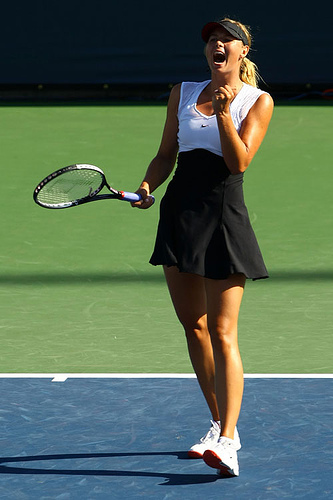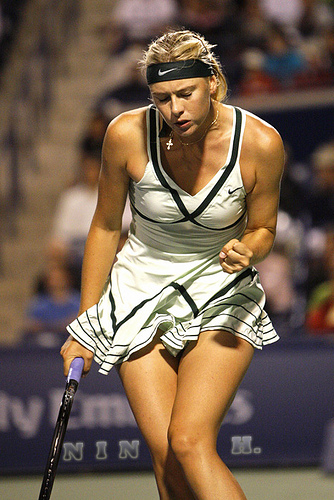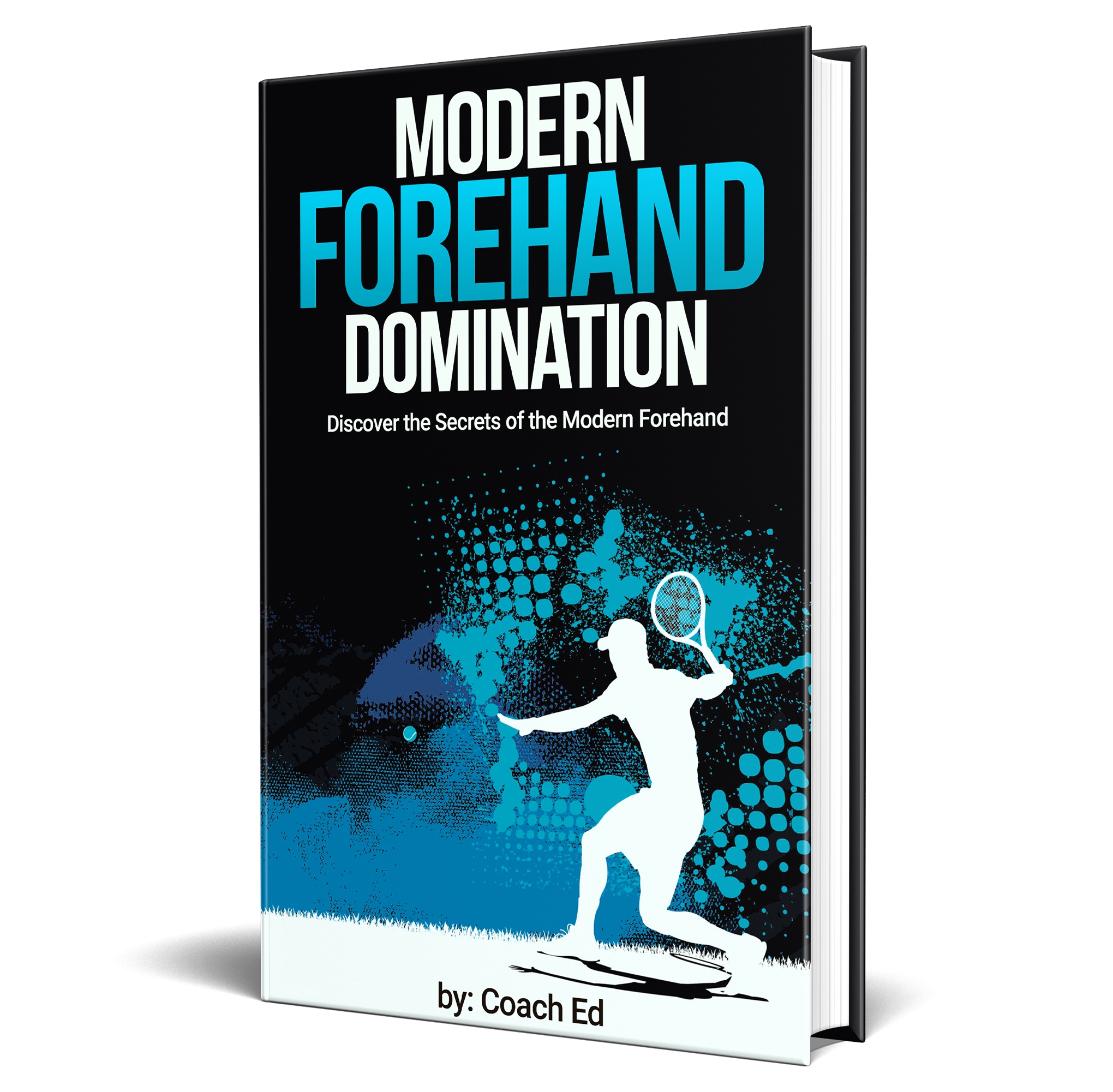Most tennis players overlook the important mental training for tennis, as this is often an invisible part that separates the tennis champions from the everyday weekend warrior. For pro players, tennis mental training is as important as the physical element and on court tennis training, because the player with a stronger mental tennis game will be the deciding factor in a competitive tennis match.
If you’ve ever felt like you are not winning as much as you should, the first thing you probably assessed about your own tennis game were your strokes and equipment. You change techniques, change rackets, change strings and string tension, hoping that all this will result in you becoming a better player. Then you go out on court and the same thing happens – you lose matches you know you should have or could have won. You were looking for answers in the wrong place because what you really needed to do was to take up tennis mental training.
Tennis Mental Training On the Professional Tour




It’s hard to believe that Roger Federer, widely considered as the greatest player of all time, started out as a temperamental youngster who often caved mentally when the pressure was on. But he learned and made the right choices, just when people were beginning to doubt if he would ever live up to his vast potential.
If you still don’t believe that tennis is a mental game as well as a physical game, then it can be guaranteed that you will not enjoy it in the best way possible. Even if you say you are only playing for exercise, you are still better off if you improve your mental approach to playing. This is because the connection between mind and body is much stronger than you might be aware of, and the more mentally fit you are, the more physically fit you will also be.
Principles Of Tennis Mental Training
There are a few basic principles to learn about tennis mental training. The most important aspect is focus. There are two different aspects to this issue. First, when the ball is in play, you should only be focusing on the ball and nothing else. You should be aware of where you are on the court and where your opponent is, but your focus should be on the ball itself alone.
Conversely, when the ball isn’t in play, you should be focusing only on things that are happening on the court. Don’t be bothered by things that are beyond your control like what’s happening on the adjacent courts, in the stands or elsewhere. Rather, focus only on things that you can control. Tell yourself to move your feet, stay low on your shots and follow through completely. This is also the time for you to think about tactics and adjustments you need to make as the match is going on. Focus is also about knowing how to take it one point at a time.
Awareness and Self Confidence in The Mental Tennis Game


Don’t dwell on the last point or any “big” point or chance that you may have blown. Regroup and focus on the current point. Additionally, don’t think about the next points as well. If you have just held serve after breaking, try your best not to relax and think only about your next service game. Try to get another break by focusing on your opponent’s service game.
This brings us to the next aspect which is awareness. We have mentioned that you need to analyze yourself and your opponent as the match progresses and make the required adjustments. This ability to analyze comes from being aware of what is going on. For example, if you are playing against someone who has a weak backhand, then it makes sense to play most of your shots to that side. But what if he is having a good day with that particular wing? You need to be aware of things like this and make the adjustments.
Another example is when the conditions are affecting play. If you start the match playing with the wind, you should hit with more topspin to help keep your shots from sailing out. But then of course, players change ends every odd number of games. So inevitably, you will find yourself playing against the wind. If you are not paying attention, you will continue to hit with topspin and find that your shots are landing too short, making it easy for your opponent to hit aggressive shots against you.
It is important to note that there is such a thing as too much analysis. You’ve heard the phrase “paralysis by analysis.” This is when you overthink things and end up doing nothing. Keep things as simple as possible. Maybe you didn’t complete your follow through so you hit your last groundstroke into the net. Take a practice swing and follow through completely, just to remind yourself. Then tell yourself you won’t make the same mistake again.
The Importance of Planning in Tennis Mental Training
To keep things simple, you must already have a plan in place before the match starts as well as alternative plans in case the first plan isn’t working. Tennis requires mental flexibility, not just physical. You can also call it versatility. If in the physical sense you stretch your muscles and joints, then in the mental sense, you try to open up your mind. This is another key requirement of tennis mental training.
The importance of making adjustments in a match has been stressed already, but this ability to make the right adjustments comes only when your mind is open and willing to try new things. A mid-match adjustment can be as simple as just playing the same game but being more aggressive. For instance: you start a match playing safely and just hitting everything to your opponent’s backhand, thinking you’ll eventually out rally him.
As the match goes on, you find that he is instead being aggressive, hitting slice approaches and coming to the net where he has good volleys. Never mind that he misses a few backhands, but by being the aggressor he has rendered your strategy ineffective. This is the time to make a simple adjustment. Keep playing to his backhand but be more aggressive. Hit harder and deeper. Come to the net yourself and make him hit backhand passes. If he passes you, then all credit to him. But more often than not, you will be on the winning end of most points because you will be the one forcing errors.
Tennis Mental Training: Developing a Positive Attitude During a Match


Anything is possible in tennis because a match isn’t finished until “game, set, match” is called. Take it point by point and, who knows; before you know it, you’re the winner already. On the flipside, if you are leading 5-1 and then your opponent pulls to within 5-4, don’t panic. Keep playing aggressively and remind yourself about what you need to do.
Mental Tennis Fitness: Another Factor in Tennis Mental Training
Physical fitness clearly affects not only what we do on the tennis court but also what we do in our daily activities. The same is true with mental fitness. That is why tennis mental training is actually useful not just on court but also in life. If you know how to focus, you can control yourself and be disciplined in your work or school. If you are aware, you are more sensitive to others and you can become more compassionate and understanding. If you have an open mind, then you will learn from your mistakes and do the right thing next time, whether it is in your relationships or career. You will stop making excuses and be comforted by the fact that, yes, you have a choice in life. As on court, you can choose to be passive or aggressive, positive or negative, try your best or give up.
Remember that no one is in a position to judge you for any of your choices. Just keep in mind that you will have to live with the consequences of those choices. If Roger Federer never chose to stop being temperamental and immature, he would have to regret that he never became a 16-time grand slam titlist
Learn to Hit a Forehand Like Roger Federer
If you want to jumpstart your forehand and play like the PROS, check out my 70+ page Tennis Ebook that will immediately show you how you can take your forehand to the next level.
The Modern Forehand Domination Ebook is guaranteed to improve your tennis technique, and increase power, topspin and accuracy of your tennis forehand!
Modern Tennis Forehand Ebook
Learn How to Hit a Forehand Like Federer, Nadal and Djokovic

